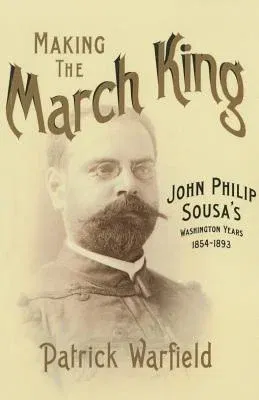John Philip Sousa's mature career as the indomitable leader of his own
touring band is well known, but the years leading up to his emergence as
a celebrity have escaped serious attention. In this revealing biography,
Patrick Warfield explains how the March King came to be by documenting
Sousa's early life and career. Covering the period 1854 to 1893, this
study focuses on the community and training that created Sousa,
exploring the musical life of late nineteenth-century Washington, D.C.,
and Philadelphia as a context for Sousa's development.
Warfield examines Sousa's wide-ranging experience composing, conducting,
and performing in the theater, opera house, concert hall, and salons, as
well as his leadership of the United States Marine Band and the later
Sousa Band, early twentieth-century America's most famous and successful
ensemble. Sousa composed not only marches during this period but also
parlor, minstrel, and art songs; parade, concert, and medley marches;
schottisches, waltzes, and polkas; and incidental music, operettas, and
descriptive pieces. Warfield's examination of Sousa's output reveals a
versatile composer much broader in stylistic range than the bandmaster
extraordinaire remembered as the March King.
In particular, Making the March King demonstrates how Sousa used his
theatrical training to create the character of the March King. The
exuberant bandmaster who pleased audiences was both a skilled and
charismatic conductor and a theatrical character whose past and very
identity suggested drama, spectacle, and excitement. Sousa's success was
also the result of perseverance and lessons learned from older
colleagues on how to court, win, and keep an audience. Warfield presents
the story of Sousa as a self-made business success, a gifted performer
and composer who deftly capitalized on his talents to create one of the
most entertaining, enduring figures in American music.

